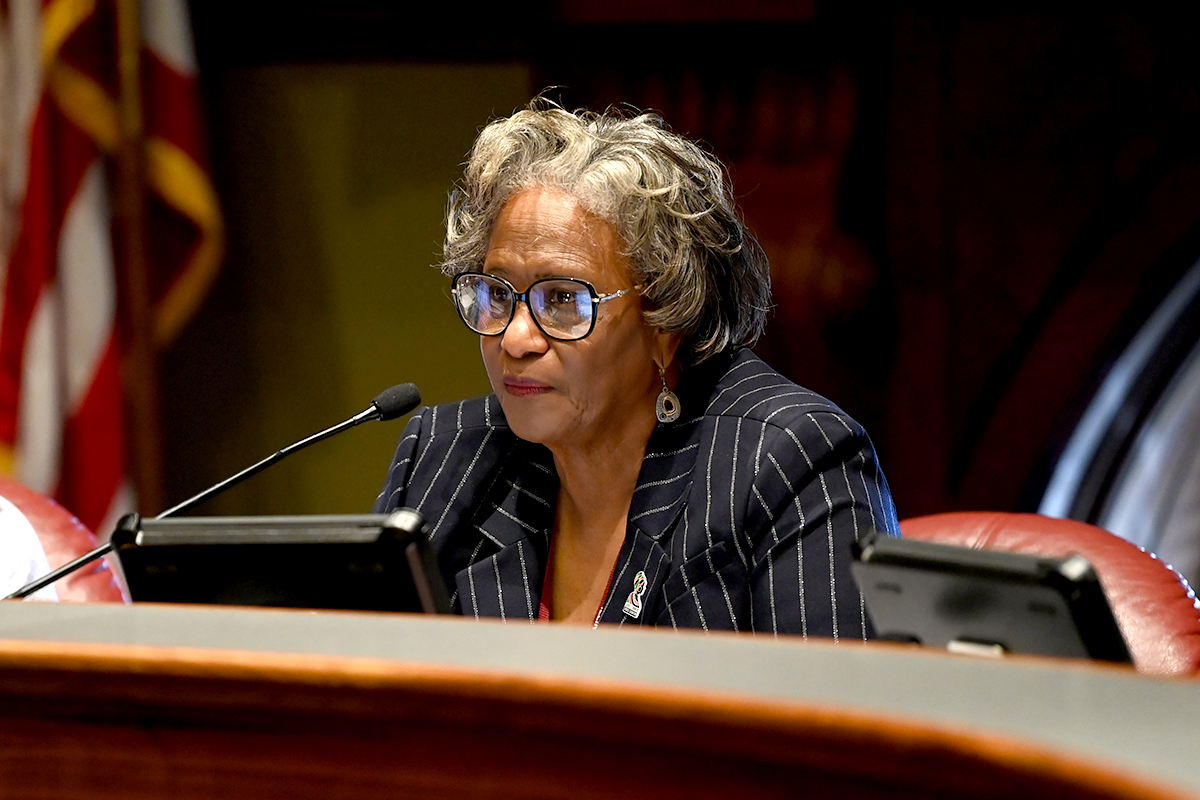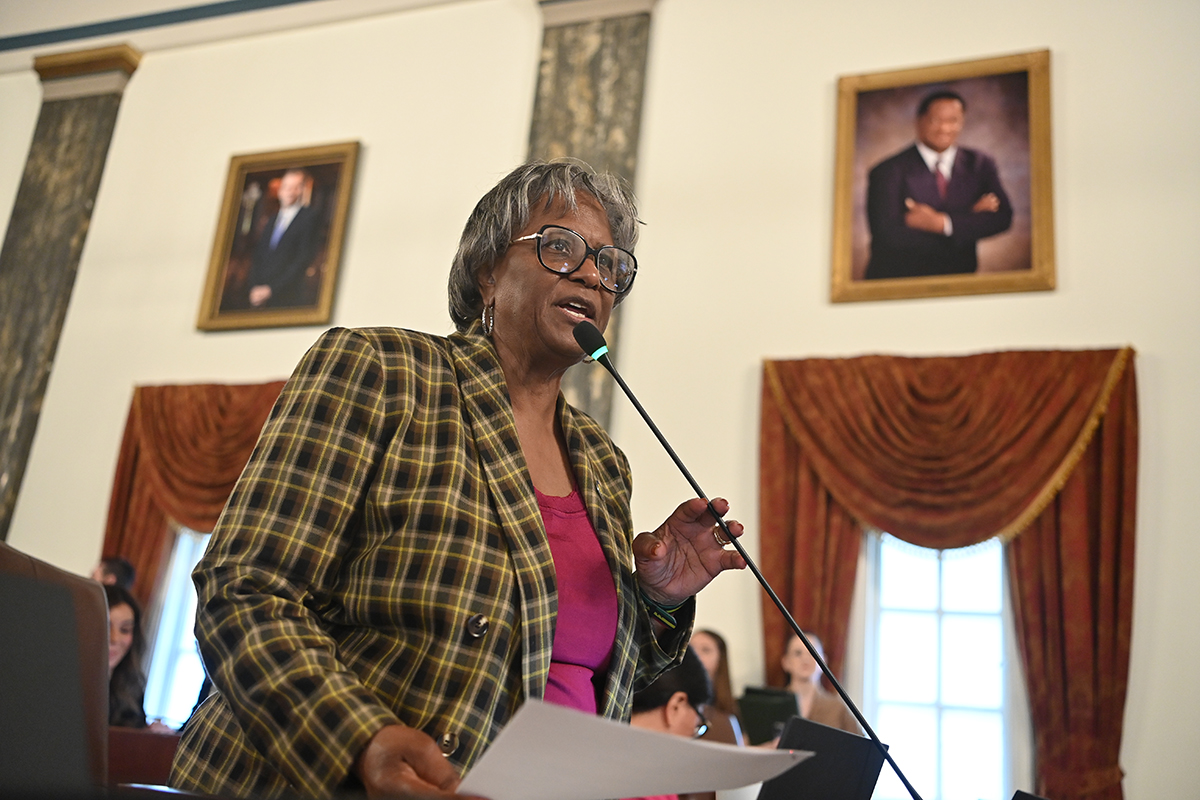- Details
- Category: Uncategorised

SPRINGFIELD – State Senator Doris Turner is leading a measure to bring fresh, healthy food to schools.
“Students need access to healthy food in schools to increase focus and brain development, setting them on a path to success in the classroom,” said Turner (D-Springfield). “We should utilize our state’s strong agriculture industry by bringing those products into schools.”
Senate Bill 1522 would appropriate $2 million to the Illinois State Board of Education for grants, contracts and administrative expenses under the federal Farm to School State Formula Grant.
Turner worked with Beyond Green Sustainable Food Partners, a firm that partners with schools and other organizations to implement affordable, sustainable changes in institutional kitchens. A total of 15 schools in Illinois currently use the model, including schools in Pawnee, Cobden, Murphysboro, Porta, northwestern Macoupin County and New Berlin. Turner’s initiative would allow more schools to participate in the Farm to School program.
“Public schools and institutions order mostly processed foods that lead to poor health,” said Beyond Green Partners Founder Greg Christian. “With measures like these, I believe Illinois can rebuild a local food system through institutional kitchens, like those in schools.”
Senate Bill 1522 was heard in the Senate Appropriations-Education Committee on Tuesday.
- Details
- Category: Uncategorised

SPRINGFIELD – The soybean is now the official state bean of Illinois, thanks to a new law led by State Senator Doris Turner.
“Decatur is the soybean capital of the world,” said Turner (D-Springfield). “When designating state symbols, we have to recognize the impact the agriculture industry has on our economy and the number of jobs it creates.”
House Bill 4439 designates the soybean as the official state bean of Illinois. According to the Illinois Farm Bureau, Illinois is the No. 1 soybean-producing state in the country, with 15% of all U.S. soybeans being produced in Illinois.
"As the largest soybean-producing state, we commend Senator Doris Turner and the General Assembly in passing House Bill 4439 to recognize the importance of soybeans to Illinois agriculture," said Illinois Soybean Association Chairman Ron Kindred.
House Bill 4439 was signed into law Friday.
- Details
- Category: Uncategorised

SPRINGFIELD – A new law spearheaded by State Senator Doris Turner will increase public safety by suspending EMS professionals who have been charged with a crime while performing their duties.
“We have to hold bad actors accountable,” said Turner (D-Springfield). “People need to know that those who respond to an emergency will prioritize their safety.”
Turner’s law will allow the director of the Illinois Department of Public Health, or their designee, to determine if the suspension of an EMS professional should extend statewide. This will apply in situations when an EMS professional has been charged with a crime while performing their official duties and continuing to practice poses the possibility of harm to the public.
“By putting these guardrails in place, we are ensuring public safety is at the forefront of our priorities,” said Turner.
Senate Bill 3134 was signed into law Friday and is effective immediately.
- Details
- Category: Uncategorised
SPRINGFIELD – Illinois students with learning disabilities who historically would have been sent to out-of-state schools will now have the opportunity of gaining an in-state education thanks to a plan backed by State Senator Doris Turner’s (D-Springfield).

House Bill 41 requires school districts to offer any child being placed in an out-of-state special education residential facility the option for placement in an in-state special education residential facility. The initiative, led by the Hope School in Springfield, was spurred by a shortage of residential facilities in other states.
Additionally, if the special education program of a school district is unable to meet the needs of a child and the child attends a private school or a public out-of-state school, then the child’s home district will be required to pay the cost of tuition and special education services during the regular school and summer terms and during the summer school term.
The legislation was signed into law today, and has an immediate effective date.
More Articles …
Page 1 of 3



